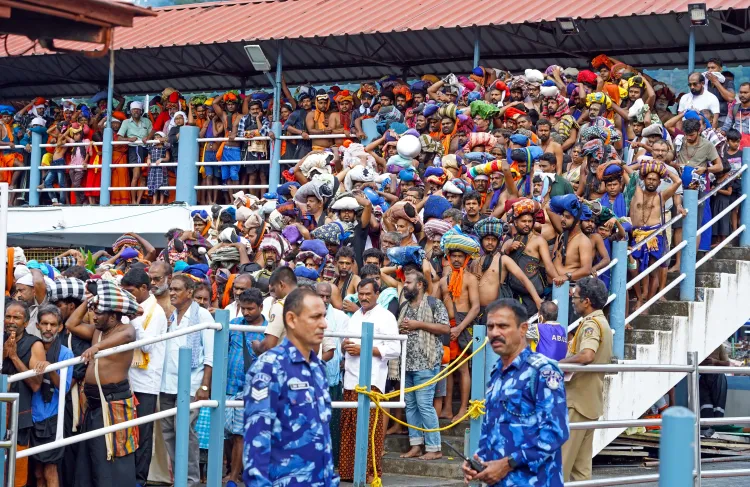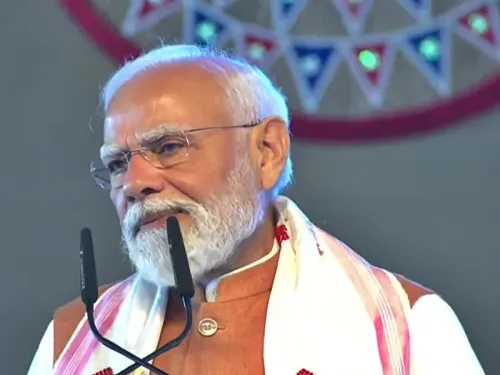Surge in Earnings at Sabarimala Temple as Pilgrim Numbers Reach New Heights

Sabarimala, Jan 3 (NationPress) The renowned Sabarimala temple in Kerala has experienced a remarkable rise in income this season, showing an increase of Rs 82 crore compared to the previous year.
P.S. Prasanth, the President of the Travancore Devaswom Board, announced on Friday that the temple's revenue primarily stems from devotees' offerings and the sale of temple-produced delicacies such as aravana payasam and appam.
“From November 15 to December 26, during the first phase of the two-month-long 2024-25 pilgrimage season, the temple garnered Rs 297 crore, an increase from Rs 215 crore in the same timeframe last year,” Prasanth elaborated.
He mentioned, “Sales of temple products have added Rs 22 crore more than the previous year, and the influx of pilgrims rose by four lakh during the 41-day span, totaling 32 lakh compared to 28 lakh in 2024.”
The second phase of the pilgrimage commenced on December 30, with the most auspicious day in this period known as Makaravilakku, falling on January 14, coinciding with Makara Shankranti celebrated in northern India. The second season will wrap up a few days later.
To handle the increasing number of visitors, temple officials have limited daily pilgrim entries to 70,000, which includes 60,000 online bookings and 10,000 spot bookings. The temple has also modified its hours, opening daily at 3 a.m. and closing at 1 p.m., then reopening at 3 p.m. until 11 p.m.
Located in the Western Ghats at an elevation of 914 meters above sea level, the Sabarimala temple is positioned four kilometers uphill from Pamba in the Pathanamthitta district, approximately 100 kilometers from Thiruvananthapuram, the capital of Kerala.
The temple, which traditionally restricts entry for women of reproductive age, is solely accessible on foot from the Pamba River. Pilgrims observe a 41-day penance prior to their pilgrimage, involving strict vegetarianism, wearing black attire, and refraining from footwear. Each devotee carries an Irumudi (prayer kit) containing coconuts, which are ceremonially broken before ascending the sacred 18 steps to the Sannidhanam.










